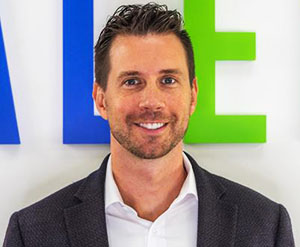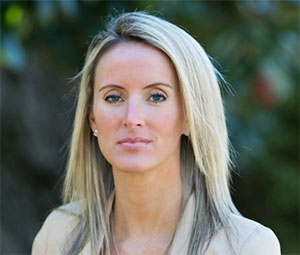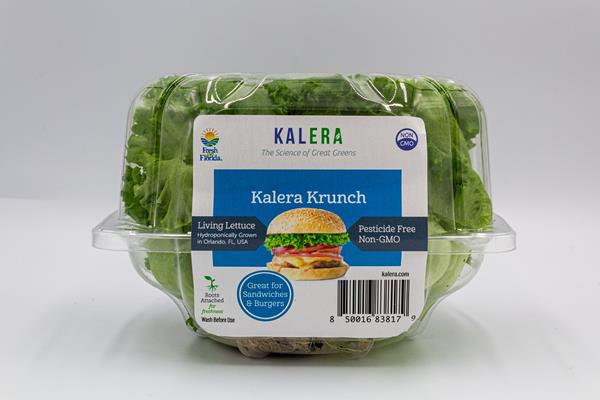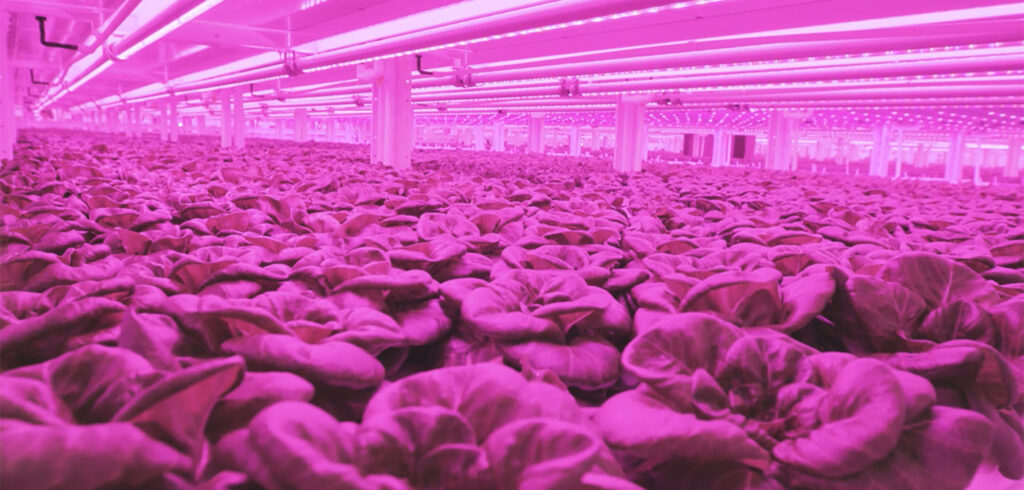US vertical farming specialist Kalera has acquired Vindara Inc – the first company to develop seeds specifically designed for use in vertical indoor farm environments as well as other controlled environment agriculture (CEA) farming methods.
Vindara, based in Research Triangle, North Carolina, USA, uses genomics, machine learning, and computational biology along with traditional breeding methods to meet customer demand for produce that is non-GMO, nutritious, high-yielding, and delicious.
Explicitly intended for high-tech indoor growing environments, Vindara seeds offer growers the opportunity to capitalise on significantly higher yield potential, production efficiencies and product customisation – in a fraction of the time through reducing the grow cycle, according to the company.
Vindara says its breeding process shortens development time from the usual 5-7 years to just 12-18 months and shaves several days off of the plant grow cycle, resulting in increased output and optimizing yield and profitability.
The seed specialist will be a fully owned subsidiary of Kalera and will operate out of Kalera’s headquarters in Orlando, Florida where Dr. Jade Stinson will continue in her existing role as co-founder and president.
Together, the combined company will increase the output from Kalera’s current and future facilities by reducing grow cycle and providing higher yields; lower costs of goods sold by reducing costs of seed and energy efficiency/automation; improve Kalera’s future EBITDA; offer differentiated products that are optimised by colour, texture, flavour, firmness and nutrient profile; accelerate and expand Vindara’s seed research and development programs focused on the indoor farming sectors; and develop a strong product pipeline beyond leafy greens to include high-yield basil, high-yield spinach and high-yield strawberries.

“Kalera has always focused on being the most technologically advanced player in the vertical farming industry,” said Daniel Malechuk, CEO of Kalera. “With the addition of Vindara’s data-driven methodology, we will be the first vertical farming company with the ability to develop its own plant varieties bred specifically for indoor farming conditions. Our acquisition of Vindara complements our overall science-driven and innovation-leading value proposition. This investment represents an important strategic opportunity to increase revenue options to Kalera while reducing its cost of materials and reducing our cycle times given Vindara’s competitive advantages. While advances in technology such as lighting, robotics, sensors, and planting substrates are all improving grower economics, seeds developed specifically for indoor farming have been a ‘missing link’ to vertical farming achieving its full potential. Together with Vindara, we are ushering in a new era of agricultural advancements that will increase production yields and produce unique crop varieties customized for the needs of our discerning customers around the globe.”

“Kalera has quickly established itself as an innovative leader and is the ideal partner to help Vindara continue optimizing seeds designed specifically for the vertical farming industry,” added Vindara’s Stinson. “With Kalera’s commitment to R&D and improving the yield, variety and characteristics of its produce, we will be able to better leverage our ability to develop customized seeds for indoor growers faster than any other seed provider. I look forward to working with Daniel and the rest of the Kalera team to continue driving innovation and building on Kalera’s rapidly expanding footprint by delivering a truly differentiated product for their customers while also accelerating our ability to provide the rest of the CEA world with our revolutionary seeds.”
Kalera currently operates two growing facilities in Orlando, and is building facilities in Atlanta (Georgia), Houston (Texas), and Denver (Colorado), which will open in 2021 along with additional facilities underway in greater Seattle (Washington), Honolulu (Hawaii), and Columbus (Ohio).
Kalera says it is the only CEA company with coast-to-coast facilities being constructed, offering grocers, restaurants, theme parks, airports and other businesses nationwide reliable access to locally grown clean, safe, nutritious, price-stable, long-lasting greens.
Once all of these farms are operational, the company expects total projected yield of several tens of millions of heads of lettuce per year, or the equivalent of over 1,000 acres of traditional field farms.




